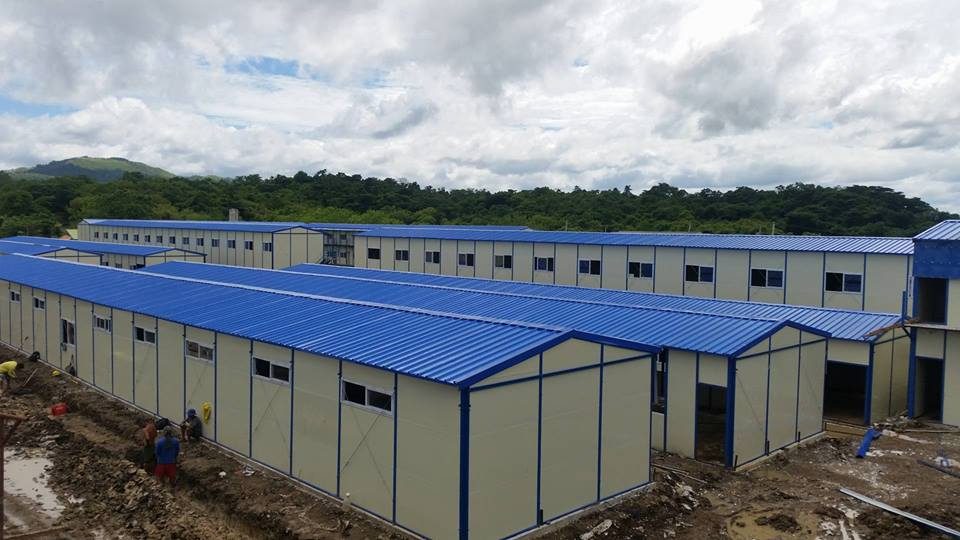SUMMARY
This is AI generated summarization, which may have errors. For context, always refer to the full article.

MANILA, Philippines – The Dangerous Drugs Board (DDB) on Thursday, November 16, expressed its support for the operation of the 10,000-bed mega treatment and rehabilitation center (TRC) in Fort Magsaysay, Nueva Ecija.
“We support the operation of the mega rehabilitation center in Fort Magsaysay. The mega rehabilitation center in Fort Magsaysay needs support and further improvement to guarantee effective delivery of services,” Senator Panfilo Lacson, the sponsor of the DDB budget in the Senate, said as he read the board’s statement.
In fact, Lacson said that in 2016, the DDB supported the operations of the facility by allocating P5 million from its special account. It also continues to enhance the facility’s in-house programs.
The DDB’s latest statement comes over a week after President Rodrigo Duterte sacked its chairperson, Dionisio Santiago, for criticizing the Nueva Ecija facility and the government’s general approach to rehabilitating drug addicts.
Duterte said he was “offended” by Santiago’s criticism.
Prior to his his resignation, Santiago designated DDB Undersecretary Jose Marlowe Pedregosa as officer-in-charge of the board.
During her interpellation, Senator Risa Hontiveros said she is “slightly disappointed” to hear DDB’s latest statement about the mega TRC. (READ: No more ‘mega’ drug rehab centers after Nueva Ecija facility?)
“I’m slightly disappointed to hear that the board now supports the mega facility as it is conceptualized, because I welcomed the earlier pronouncement of the DDB that there was a miscalculation,” Hontiveros said in a mix of English and Filipino.
Senate Majority Leader Vicente Sotto III chimed in, saying Santiago’s remarks about the supposed “wastage” of the Nueva Ecija facility did not sit well with the current administration because it was a gift from Chinese tycoon Huang Rulun.
“An Asian trait is you never criticize a gift in public. May nagregalo sa ‘yo, ‘wag mong pipintasan sa publiko. Ugali ng Asyano ‘yun, kaya medyo it did not sit well with some of our officials,” Sotto noted.
(An Asian trait is you never criticize a gift in public. If someone gives you something, don’t criticize it in public. That’s an Asian trait, that’s why [Santiago’s remarks] did not sit well with some of our officials.)
Sotto had earlier suggested that the mega TRC can also be used as a “mega drug enforcement academy.”
Transfer patients?
On Thursday, Sotto also suggested that patients from other TRCs in the country can be transferred to the facility. DDB’s 2016 figures showed that 6,079 patients are admitted in TRCs nationwide.
When Lacson explained that relatives will be “dislocated” if government transfers some patients from other TRCs to the one in Nueva Ecija, Sotto pointed out that this is a misconception.
“The last time I heard, when you enter a rehabilitation program, as much as possible, the first 6 months you are removed not only from the source of the drugs, of your addiction, but you’re also removed from your family,” said Sotto, who chaired the DDB under the Arroyo administration.
He was later corrected by the DDB, who said patients are not allowed to see their family only during the first two months of rehabilitation.
Sotto insisted: “What happens is, generally, not all the time, but mostly mas gusto ng pamilya na malayo sa kanila ‘yung rehabilitation center (the family prefers it when the rehabilitation center is located far from them).”
He then gave examples of families in Cebu who prefer bringing their patients to Bacolod or Dumaguete.
“Kaya hindi rin naman kailangan talaga na ‘yung rehabilitation center ay katabi noong community mo mismo. It doesn’t really work that way. Puwede siguro mapag-aralan nang mabuti ng DDB ‘yan na we can accommodate them in other rehabilitation centers, especially if we have a mega drug rehabilitation center,” Sotto added.
(That’s why it’s not necessary that the rehabilitation center must be beside the actual community. It doesn’t really work that way. Maybe the DDB can study that further, so that we can accommodate them in other rehabilitation centers, especially if we have a mega drug rehabilitation center.)
But Lacson informed Sotto of a “new requirement or standard imposed” by the United Nations Office on Drugs and Crime that family support is part of a patient’s rehabilitation.
“Perhaps my information comes from old school,” Sotto answered back.
Lacson said the DDB’s proposed 2018 budget is pegged at P150.93 million. – Rappler.com
Add a comment
How does this make you feel?
There are no comments yet. Add your comment to start the conversation.